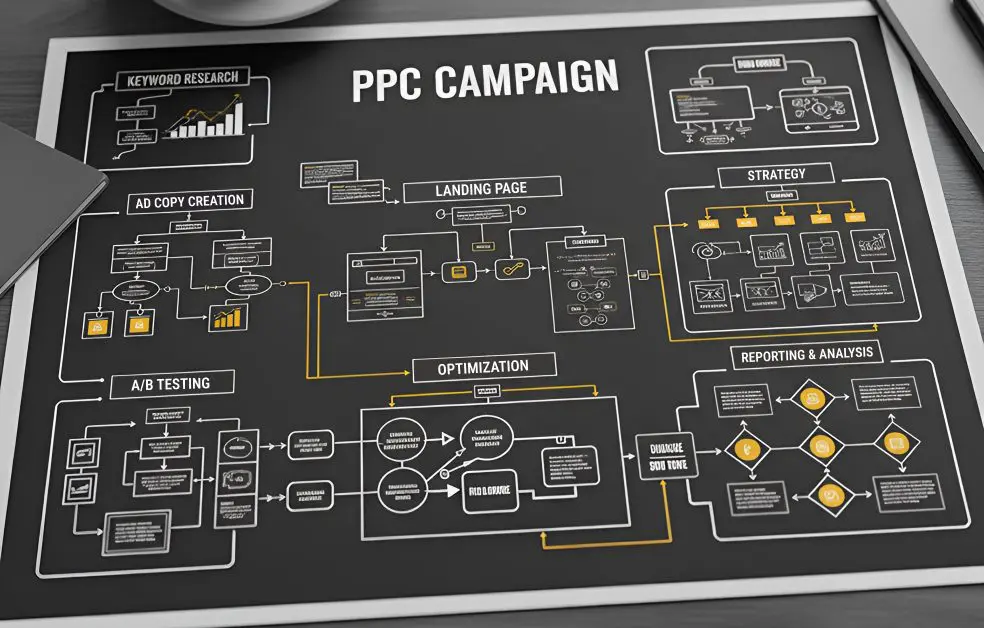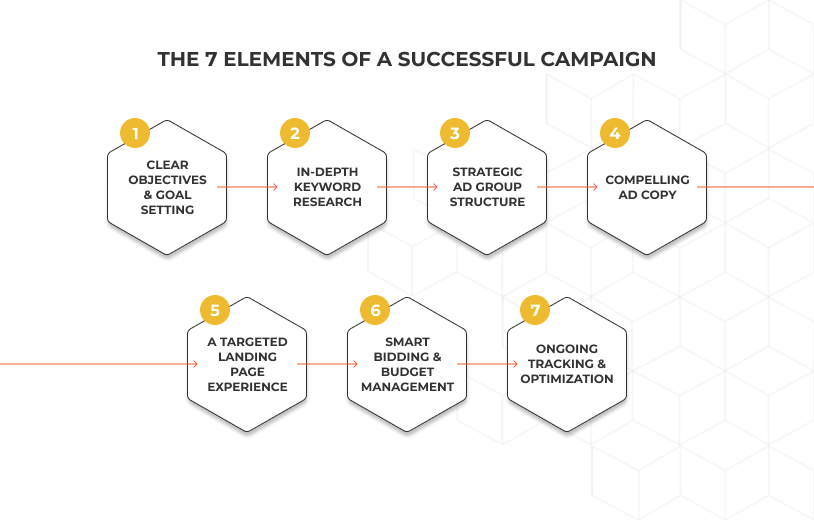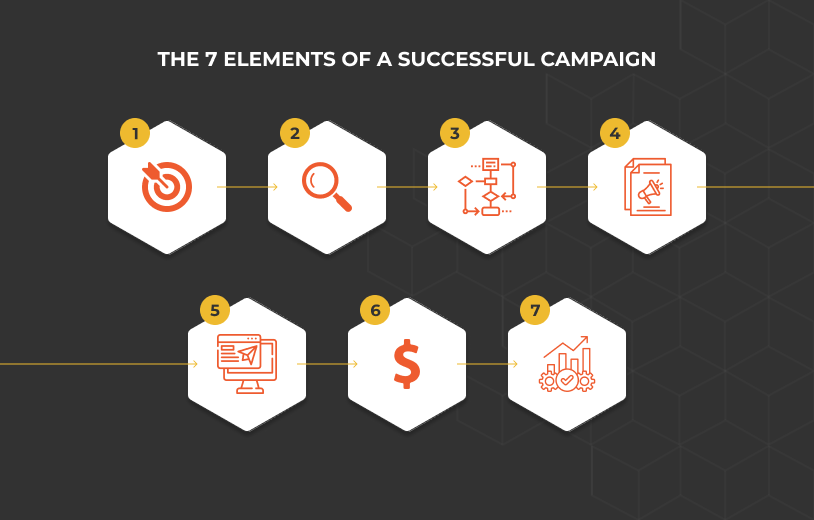Key Takeaways
- A PPC campaign is not a single ad, but a structured set of ad groups used to organize your keywords, ads, and landing pages around a common theme or goal.
- A successful campaign always begins with clear objectives, whether it’s generating leads, driving online sales, or increasing brand awareness.
- The core of a campaign involves creating tightly themed ad groups where your keywords, ad copy, and landing page are all highly relevant to each other.
- PPC is not “set it and forget it.” The final element is ongoing tracking and optimization, using data to continuously improve performance over time.


